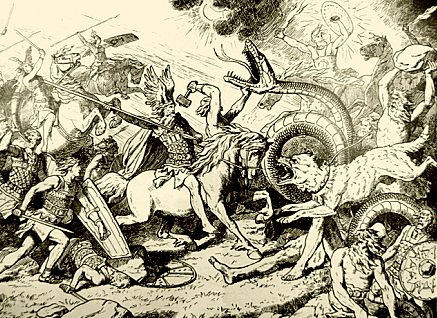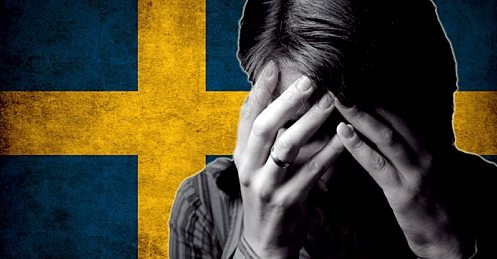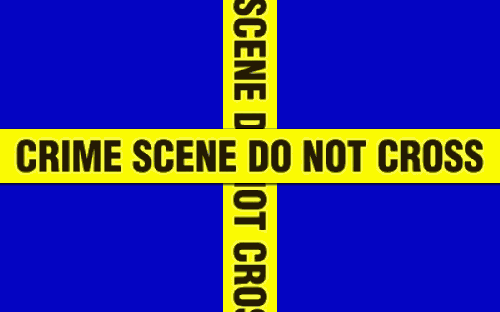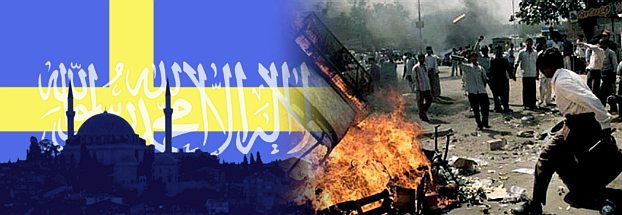It has been nearly eight years since Fjordman was driven into hiding by the uproar over the massacre by Anders Behring Breivik in Oslo and on the island of Utøya. The killer’s 1,500-page “manifesto” was packed with references to and quotes from the Counterjihad movement, with Fjordman and Robert Spencer heading the list.
The apparatchiks of the Legacy Culture — not just in the media, but academics, politicians, and public intellectuals — were unwilling to let a crisis go to waste. They let loose with both barrels against those of us who resist the Islamization of our societies. Since Gates of Vienna was Fjordman’s most frequent venue, we were drawn into the media frenzy along with the major players. Our fifteen minutes of fame went on for months, and I can’t tell you how glad we were when the furor finally died down.
When the uproar was at its height in early August of 2011, someone suggested to me that I might want to shut Gates of Vienna down to protect myself. I said, “[Epithet redacted] that! I’m not shutting anything down!” My Scottish blood comes to the fore whenever hostile forces poke at me, and my default response is always defiance.
I’m glad we decided to keep on with it, and follow the Breivik saga as it unfolded. The Butcher of Utøya was tried the following spring, convicted, and sentenced to the maximum prison term that Norwegian law allows — twenty-one years. He was eventually ensconced in a well-appointed prison suite, from which he issued occasional proclamations and demands via his lawyers.
A coda of sorts was provided in the fall of 2013, when Mr. Breivik sent a letter to various outlets of the mainstream media. In it he confessed that his devotion to the Counterjihad had been a hoax concocted to draw the blame away from his true allies, the “nordicist” movement — i.e. the neo-Nazis.
Strangely enough, Breivik’s confession received virtually no attention in the media. If it weren’t for the hard-left Swedish site Expo, we never would have been aware of it. We were fortunate to be able to obtain a copy of the letter (PDF), and posted it so that anyone who was interested could take a look.
But there weren’t many people interested in the fact that Breivik was actually a Nazi who held the milquetoasts of the Counterjihad in disdain. The media weren’t about to acknowledge that their Narrative had been utterly false. They had no intention of taking responsibility for ruining the reputations, careers, and lives of the people they had slandered. None of that was of any importance — the Narrative must go on.
Bruce Bawer has published a retrospective on the whole sorry affair at FrontPage Mag. Below are some excerpts:
Enemy of the People
Norway is still treating Peder “Fjordman” Jensen as a criminal.
by Bruce Bawer
April 16, 2019
Since 9/11, thousands of deadly jihadist atrocities, big and small, have taken place around the world. Almost uniformly, the Western media totally ignore the small ones, and also ignore the big ones that take place in Israel, the Muslim world, and non-Western locations generally. As for the large-scale terrorist acts that occur from time to time in major Western cities — that is to say, the attacks that are too massive and too close to home for the media to get away with ignoring — the mainstream journalists who cover them devote a good deal of their time to tiptoeing around, or openly and vociferously denying, the connection between these actions and the religion of Islam. Indeed, it is by now an indelible part of the media narrative in these instances that the real victims — or the first victims, or the ultimate victims — of jihadist terror are the members of Western Muslim communities who, we are repeatedly told, have been unfairly stigmatized ever since September 11, 2001, and who, in the wake of every new act of Islamic terror in the West, experience, or at least tremble in fear of, a fresh, powerful, and unjustified anti-Muslim backlash. Virtually never does any mainstream Western journalist ever acknowledge that jihadists, when they massacre infidel men, women, and children, are following explicit instructions set down in the Koran — the book that every believing Muslim on earth considers holy. Even now, going on eighteen years after 9/11, some journalists honestly don’t know that jihad comes right out the Koran; others do know, but would never publicly connect these dots. Neither would most politicians or media commentators or supposed “experts” in Islam. For to do so would be to violate the most important unwritten commandment of the post-9/11 Western world: namely, thou shalt not admit that those who commit murder in the name of Allah, far from being traitors to their faith, are, on the contrary, the most obedient of its adherents.
The media have done a remarkable job of keeping the lid on this truth. One of the few times in recent years when someone let it out of the box in a big way was on June 20, 2017, when Tommy Robinson, appearing as a guest on Good Morning, Britain, suddenly held up a copy of the Koran, sending the show’s host, Piers Morgan, into an instant, and palpable, panic: “Show some respect!” Piers insisted. “There are,” Tommy replied, “a hundred verses in this book inciting violence and murder against us.” Piers repeated, with a rare urgency, plainly rooted in trepidation: “Show some damn respect for people’s religious beliefs!” Tommy asked why he should be expected to “respect a book that incites murder against me.” “Put it down!” Piers again demanded, unwilling to answer a question that, in fact, answered itself. Tommy, refusing to put the book down, proceeded to quote critical remarks about Islam by prime ministers William Gladstone and Winston Churchill. Meanwhile Piers tried desperately to talk over him, calling him “a bigoted lunatic” and an “Islamophobe” and accusing him of “doing something deliberately inflammatory and poisonous” and “stirring up hatred.” Forcefully, Tommy countered: “This book is the reason we’re in such a mess!” Piers rejected this plain fact, feebly asserting that “terrorists abuse the nature of Islam” — a statement that made no sense whatsoever — and as Tommy began to read aloud a Koranic verse calling on believers to murder infidels, the segment was brought to an abrupt end. One can only imagine the sheer panic in the control room.
[…]
Before March 15, 2019, there was July 22, 2011, when Anders Behring Breivik exploded a truck bomb outside a government office building in Oslo and then shot up dozens of teenagers at a Labor Party youth camp on the nearby island of Utøya — his professed motive being to punish the politicians whom he considered responsible for the Islamization of Norway as well as the future politicians who would inherit the philosophies, policies, privileges, and powers of today’s Labor leaders. Before Breivik headed out that day to commit mass murder, he posted online a lengthy “manifesto” that was part history, part political commentary, and part instruction manual for those whom he imagined would join him in his crusade. Much of this document, it turned out, consisted of texts by other people that Breivik had lifted without permission. The person whose writings Breivik made the most extensive use of was a young Norwegian named Peder Jensen, who had written many sober and learned essays about Islam under the name “Fjordman.” Peder had attended the universities of Bergen and Oslo and the American University in Cairo, learned Arabic, earned a master’s degree with a thesis on Internet censorship in Iran, and was part of a civilian observer mission on the West Bank in 2002-3. He planned a diplomatic career, only to discover that his frankness about Islam was not welcome at the Norwegian Ministry of Foreign Affairs. He then became a prolific writer on the subject. Unlike the Koran, however, Peder’s oeuvre contained not a single word calling for action of the sort of which Breivik was guilty. But that didn’t matter to the apologists for Islam in the Norwegian establishment. Immediately Peder was lumped in with Breivik and, to a very large extent, held responsible for his crimes. Other critics of Islam, myself included, were tarred with the same brush, but Peder got the worst of it by far.
Continue reading →


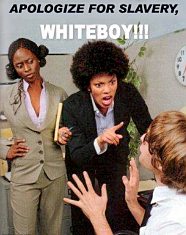 Because the USA has been the dominant economic and cultural power in the Western world since the Second World War, ideas such as “white privilege” and “whiteness studies” are also exported to Europe. The notion of “white privilege” is already questionable in North America, where Europeans do not constitute the native population. The concept becomes entirely meaningless in Europe, where Europeans are the natives.
Because the USA has been the dominant economic and cultural power in the Western world since the Second World War, ideas such as “white privilege” and “whiteness studies” are also exported to Europe. The notion of “white privilege” is already questionable in North America, where Europeans do not constitute the native population. The concept becomes entirely meaningless in Europe, where Europeans are the natives.

